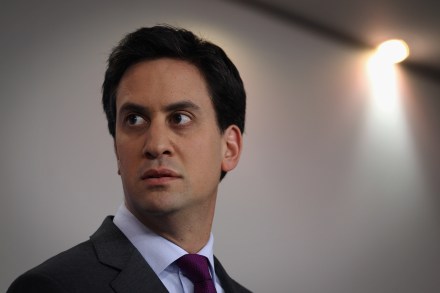The new politics of leaning on business
Ed Miliband the consumer champion, the saviour of the squeezed classes. That, more or less, is how the Labour leader has always sought to sell himself — but this morning the sales pitch goes into overdrive. He has an interview with the Daily Telegraph in which he attacks ‘Rip-off Britain’. Not the TV show, mind, but those companies that hammer their customers with extra costs and hidden charges. Excessive savings fees, car-parking charges, airline levies, bank charges, consumer helpline costs and energy bills; all these should come to an end, says Miliband. And he has a few measures for achieving that. What strikes me, when reading the interview, is how this















